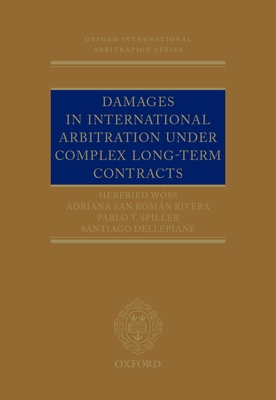This is a detailed analysis of the legal and financial matters arising from the formulation of claims to the award of damages and loss of income, in the case of breach of long-term complex contracts in international arbitration. It tackles the challenges of structuring claims and awarding damages, with focused examination of the but-for method.
Damages are a topic of central importance in international arbitration, being very often the principal concern of the parties, and an indication of the performance of their counsel. They are also one of the most complex topics. This book addresses the many competing factors that contribute to their nature and amount: while they are compensatory, they may be subject to counterclaims and set-offs, affected by failures to mitigate, or inflated by considerations such as interest and costs. Specialist evidence is relied on to complete composite calculations, taking into account such evasive factors as the destruction of market value, uncertainty of future revenues, projected interest rate changes, and lost dividends. The lack of understanding of the underlying considerations, methods such as "splitting the baby", or dogmas such as the misinterpreted "efficient breach of contract", combined with the already high level of burden of proof, can make successful damages claims or properly reasoned awards difficult to achieve. This book provides in-depth analysis of the legal, financial, and economic issues involved in the preparation of claims and arbitral awards for damages and loss of income, for the breach of complex long-term contracts in international arbitration. The authors address matters such as the but-for method and the reconstruction of the hypothetical course of events as well as the quantification of damages. It provides a detailed coverage of issues arising when structuring, arbitrating, or making an award on damages, making it a valuable reference for practitioners in the field. It includes a number of leading cases (including commercial and investment arbitrations), focusing on the damages analysis for breach of contract.
Get Damages in International Arbitration under Complex Long-term Contracts by at the best price and quality guranteed only at Werezi Africa largest book ecommerce store. The book was published by Oxford University Press and it has pages. Enjoy Shopping Best Offers & Deals on books Online from Werezi - Receive at your doorstep - Fast Delivery - Secure mode of Payment
 Jacket, Women
Jacket, Women
 Woolend Jacket
Woolend Jacket
 Western denim
Western denim
 Mini Dresss
Mini Dresss
 Jacket, Women
Jacket, Women
 Woolend Jacket
Woolend Jacket
 Western denim
Western denim
 Mini Dresss
Mini Dresss
 Jacket, Women
Jacket, Women
 Woolend Jacket
Woolend Jacket
 Western denim
Western denim
 Mini Dresss
Mini Dresss
 Jacket, Women
Jacket, Women
 Woolend Jacket
Woolend Jacket
 Western denim
Western denim
 Mini Dresss
Mini Dresss
 Jacket, Women
Jacket, Women
 Woolend Jacket
Woolend Jacket
 Western denim
Western denim
 Mini Dresss
Mini Dresss






























































